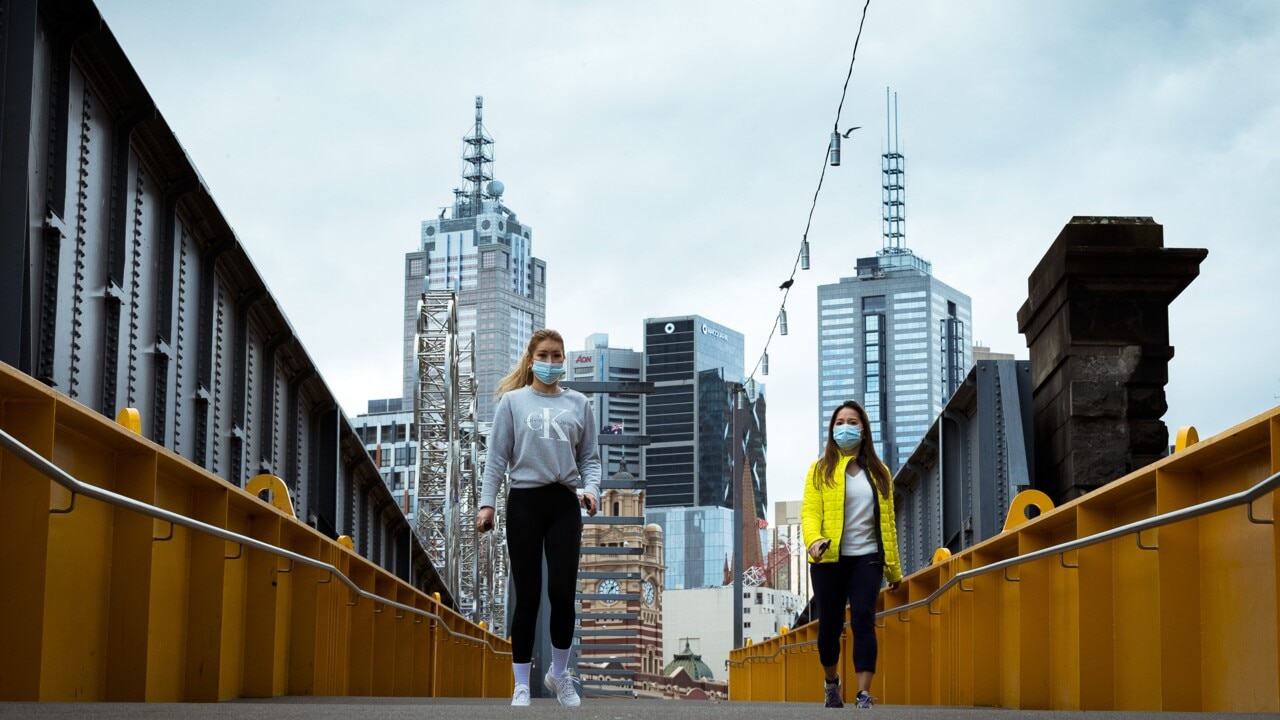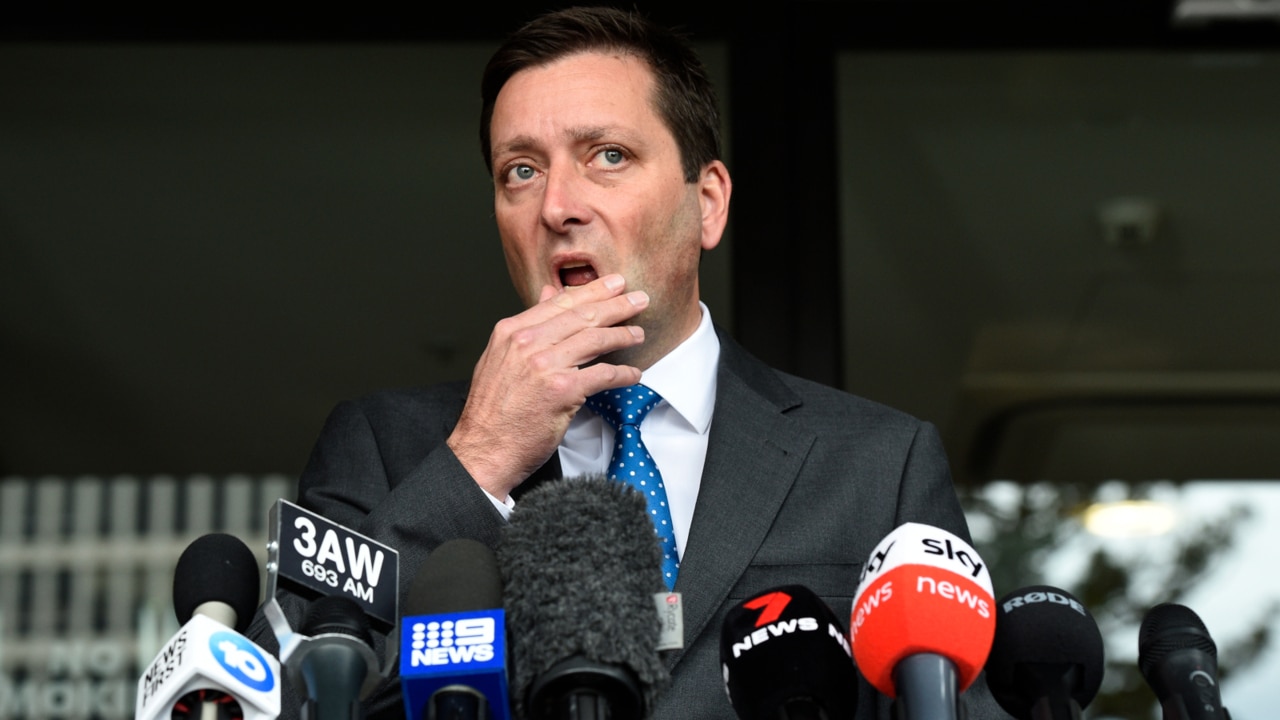Dan Andrews’ lockdowns linger as debt soars and election calls
Despite Liberal infighting and the easing of pandemic pressure, is Labor facing a backlash?

He, like every serious medical professional, knows the effects of the pandemic lockdowns are lingering.
“It’s got a long tail,’’ he says. “It’s not over at all. It still carries a very heavy weight. They were trapped and you don’t recover from that quickly.’’
Carr-Gregg, one of the nation’s highest-profile child and adolescent psychologists, is like thousands of medical professionals sifting through the ashes of Victoria’s pandemic response, one that was harsh, at times nutty in its excesses and littered with state and federal mistakes.

But in global terms it yielded, according to many in the public health fraternity, some meaningfully positive results during a global crisis that minimised the 2020 and 2021 death toll.
While the worst of the pandemic, in terms of restrictions on community movement, seems well past Victoria and the rest of Australia, it has provoked one of the great conundrums of recent political history.
How can the Andrews government remain so popular in the statewide opinion polls?
There is a twin effect of the government’s pandemic response: one that lies in the psychological backwash, the other in the debt problem inflicting the southern state that could have an intergenerational effect.

Those understating the surging debt – due to hit nearly $170bn in 2025-26 – forget that the assets the Kennett government used to drive down long-term liabilities a generation ago are all gone from public hands.
There are no easy fixes; if growth doesn’t work then higher taxes and spending cuts will.
And yet, if you believe the polls, both the Andrews government’s pandemic response and its rampant spending are getting a big tick from a community that just wants to move on.
There is so much trepidation in Coalition ranks about its public response to the pandemic that its policy on future lockdowns was announced on social media (Facebook Exclusive!) and attracted deeply limited follow-up in the morning newspapers.
The low-key response to what many conservatives would have thought would be a marquee election campaign policy was stark.
“There is a lot of concern about the teal seats. It was decided not to amplify it. It wasn’t ignored, just wasn’t overly accentuated,” a senior Liberal said. “Teal voters don’t like the muscular response to the pandemic.”
Another senior Liberal described the tepid launch of the policy as “f..king weird”, amid pressure internally for leader Matthew Guy to honour his pledge to hold Labor to account over pandemic controls.

Nick Reece, a former director of strategy for Julia Gillard as prime minister, said the media coverage of Covid-19 had become more low key and that there was now a sense that people were “just wanting to move on”.
“There’s not a lot of talk about the pandemic,” added Reece, who is also Melbourne’s deputy lord mayor.
His experience working for Victorian Labor after the Black Saturday bushfires hit in early 2009 was that by the time the election came at the end of 2010, it did not feature significantly in the campaign.
Like the pandemic, people, it seems, were both exhausted by the crisis and accepting that it was, in the main, a conjunction of unique circumstances.
The Victorian Liberal Party has performed appallingly at a state level pretty much since Jeff Kennett lost in 1999, save for one term from 2010 to 2014.
This campaign has been marked by the worst Liberal infighting, leaking and disunity since 2002, which was the year Labor’s Steve Bracks won in a landslide and set the framework for the ALP’s incursion into Melbourne’s east.

But the Coalition has been pretty consistently on message, backing cost-of-living policies that include sharply cheaper train fares, which will resonate in many suburbs.
The big question will be whether there is a so-far hidden trap for Labor, one that is not being picked up in the published statewide polling, which can overlook specific local factors.
To that end, there is a fair deal of nervousness among Labor hardheads, who are warning that the government could in fact be facing a backlash.
No tsunami, no 2002-style landslide, but a potentially significant correction that might cost it six or more seats, maybe pushing the government into minority, which would happen if 11 or more seats fell.
The Coalition needs 18 seats to secure a majority and no one thinks that will happen, particularly given there could be Liberal losses in three seats – Benambra, Kew and Caulfield.
Multiple Labor sources have said there are a long list of government seats under threat of falling, with the Greens on track to pick up two to three seats, the teals between one and four and the Coalition potentially several, although offset by possible losses.
“It will be a wild ride on election night,” one Labor figure said. “But it won’t be a landslide.’’
Reece says the election is “one of the most unpredictable of modern time’’ but he doesn’t believe the pandemic has “changed people’s attitude to life”.

Perhaps emblematic of the challenges ahead is the soaring state debt, the highest of any state in the country and exacerbated by the 2020 lockdown.
The interest bill to revenue measure is climbing, and potentially sharply, but well below the levels of the Cain-Kirner years; this historical aside doesn’t paper over the challenges of $170bn worth of debt that the government isn’t looking like paying down.
Nor does it factor in the potential billions that will be needed over time to address the annual shortfalls in the workers’ compensation scheme, WorkSafe, the most recent cash injection hitting $450m for last financial year.

Once again, the thinking is that voters, post-pandemic, are not attuned to the micro detail of the state budget.
They will, however, if it all goes wrong in the next term. But don’t expect too many politicians to dwell on it between now and the November 26 poll.
Major Labor policy announcements, like seven train crossing removals and several new stations, don’t even come with ballpark costings, even though the price will be massive.
Then again, what’s a billion dollars (two?) among friends?








Michael Carr-Gregg has spent a lifetime as a Melbourne-based psychologist helping young people recover from mental health downturns and then hopefully grow and achieve their potential.